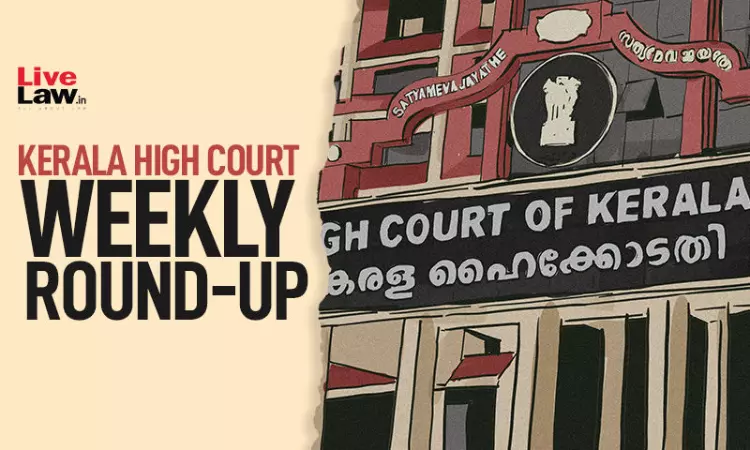Kerala High Court Weekly Round-Up: December 5 To December 11, 2022
Navya Benny
12 Dec 2022 9:30 AM IST

Next Story
12 Dec 2022 9:30 AM IST
Nominal Index [Citation 2022 LiveLaw (Ker) 632-643]Dr V. V. Haridas MD v. State of Kerala and ors. and Kinder Women's Hospital and fertility centre v. State of Kerala and Ors. 2022 LiveLaw (Ker) 632A. Salim v. M/S Asianet Satellite Communication Ltd. 2022 LiveLaw (Ker) 633Najeeb Kanthapuram v. K.P. Mohammed Musthafa @ K.P.M. Musthafa & Ors. 2022 LiveLaw (Ker) 634Suneesh v. State of...
